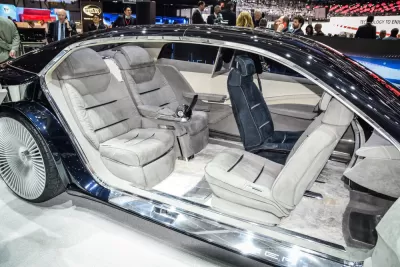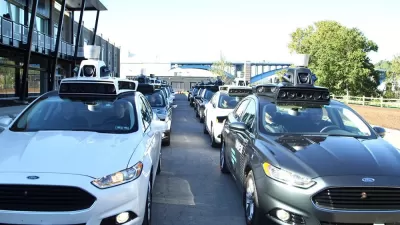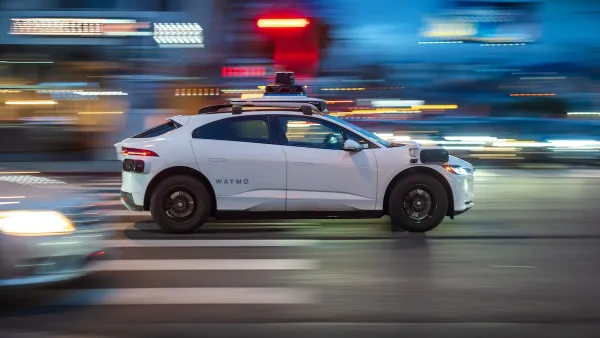It's all about the business model.

David Roberts writes about a future of autonomous vehicles, predicting an angle that hasn't been discussed in detail before, but seems all-too-obvious. Roberts is talking about advertising as a business model for the fleets of shared vehicles that many assume will drive individual, private transportation.
The signs of this eventuality are already apparent, writes Roberts, but here's the core of the prediction in its full realization:
So we have to at least consider the possibility that the future of transportation could be dominated by large fleets of shared, electric, autonomous vehicles funded by revenue from advertising — that our smart vehicles could become our next smartphones, tools to deliver our attention to advertisers.
The implications of this prediction don't just have consequence for the user experience of riding in a driverless car.
If shared fleets of autonomous vehicles come to be funded primarily by advertising, we will end up with an auto industry even more committed to auto supremacy than the current one — at best a reluctant partner in any effort to make cities denser and more livable, at worst a committed foe.
FULL STORY: Here’s the real nightmare scenario for self-driving cars

Planetizen Federal Action Tracker
A weekly monitor of how Trump’s orders and actions are impacting planners and planning in America.

Maui's Vacation Rental Debate Turns Ugly
Verbal attacks, misinformation campaigns and fistfights plague a high-stakes debate to convert thousands of vacation rentals into long-term housing.

San Francisco Suspends Traffic Calming Amidst Record Deaths
Citing “a challenging fiscal landscape,” the city will cease the program on the heels of 42 traffic deaths, including 24 pedestrians.

Amtrak Rolls Out New Orleans to Alabama “Mardi Gras” Train
The new service will operate morning and evening departures between Mobile and New Orleans.

The Subversive Car-Free Guide to Trump's Great American Road Trip
Car-free ways to access Chicagoland’s best tourist attractions.

San Antonio and Austin are Fusing Into one Massive Megaregion
The region spanning the two central Texas cities is growing fast, posing challenges for local infrastructure and water supplies.
Urban Design for Planners 1: Software Tools
This six-course series explores essential urban design concepts using open source software and equips planners with the tools they need to participate fully in the urban design process.
Planning for Universal Design
Learn the tools for implementing Universal Design in planning regulations.
Heyer Gruel & Associates PA
JM Goldson LLC
Custer County Colorado
City of Camden Redevelopment Agency
City of Astoria
Transportation Research & Education Center (TREC) at Portland State University
Jefferson Parish Government
Camden Redevelopment Agency
City of Claremont





























